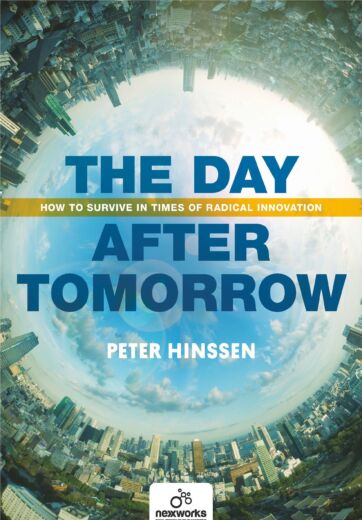Two hundred years ago, nations were the undisputed realms of power. Countries would go to war to fight boundaries, secure trading rights and defend lucrative markets. Regions would be colonized by nations. Empires rose and fell.
In the past 100 years, we've seen the rise of corporations as the true embodiment of power. My father worked for Exxon his entire career. If you ask me who has more real power worldwide — my home country, Belgium, or a corporation like Exxon — the answer is very simple. In the last 50 years of globalization especially, corporations have taken over control. World players like Nestlé, Exxon, General Electric or Monsanto have become global powerhouses of influence and authority.
But today, that’s changing too. Today, we see the rise of the global networks: giant companies like Facebook, Google, Amazon, Alibaba, Baidu and TenCent. These new global networks grow even faster than corporations. They are more connected to their users and know everything about them. That’s because they have access to the oil of the 21st century: information.
Where the battle of the 20th century was about the power balance between nations and corporations, the 21st century has added an exciting new player into the mix: the global information networks. They are moving faster, with more impact and with a clear desire to dominate the world of post-capitalism, where knowledge, rather than capital, land, or labor, is the new basis of wealth.

The Concept Of Nations Is Crumbling
The irony is that instead of focusing on economies of scale, the world of nations seems to be crumbling. Even when we construct the concept of a European Union, the British vote to opt out with Brexit. The Catalans and the Basques want to leave their Spanish motherland. From Scots voting for independence to jihadi declaring a new state in the Middle East, the concept of nations is crumbling, while the concept of networks is growing like wildfire.
Debora MacKenzie wrote an absolutely brilliant piece on the ‘End of Nations: Is there an alternative to countries?’ in the New Scientist. She clearly stated that there is a growing feeling among economists, political scientists and even national governments that the nation state might not necessarily be the best scale on which to run our affairs. But it's all we've got at the moment.
Global Networks Of Experts
She sees a possible future where hierarchies could give way to global networks of experts and bureaucrats from nation states. Today, governments already work with these kinds of flexible networks such as the G7 (or G20) to manage global problems, often more and better than with the UN hierarchy.
“Networked problems require a networked response”, as Anne-Marie Slaughter of Princeton University is quoted in Debora MacKenzie’s article. Today we are seeing problems that are emerging from the global interrelatedness, such as economic instability, pandemics, climate change or cybersecurity, that can only be solved with networks. Just like I told corporations in The Network Always Wins that they had to become a network, if they wanted to survive in this networked world, so must nations and governments adapt to their evolving environment. They too, must tap into the power of networks if they want to bring us all safely to our Day After Tomorrow.
This article is adapted from my new book, The Day After Tomorrow (www.dayaftertomorrow.com).
